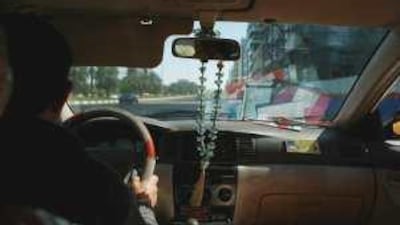The last thing I expected a year ago, as I was shivering on my way to work in one of the world's coldest big cities, was that it wouldn't be long before I was braving weather of another kind: temperatures in the mid to high 40s in Abu Dhabi, with the occasional 50 on a seriously warm day. I was working at the Chicago Sun-Times and putting up, reasonably cheerfully, with winter in a city I'd come to know and love since 2000, when I did my first stint, as a consultant, at that brash, brawling, Pulitzer-winning tabloid.
The paper, like just about every mainstream daily in North America, wasn't doing particularly well. It was being buffeted by a toxic combination of hard times all round in the newspaper business and the pillaging of the corporate coffers by some previous proprietors. And there were rumours of trouble on the horizon. Come February, I discovered that the rumours were true. I also discovered myself laid off. Last in, first out. Jobless.
A few weeks later I heard from a journalist friend about a new, English-language daily in the UAE. It was called The National, and word was it was still hiring. The next thing I knew was that my Etihad flight out of New York was touching down at Abu Dhabi International Airport and I was in a world that was very, very different from the places I'd lived and worked previously - England, Canada, the Caribbean and the US.
The first thing I discovered was that finding somewhere to live was going to be anything but easy. When I'd been arranging the job, I was told I could expect to pay around Dh60,000 for an unfurnished one-bedroom flat, which I found hard enough to believe. That was around March of last year. By the time I'd arrived in June, that figure had jumped to Dh90,000 and up, a substantially larger chunk of my salary than I had anticipated. The big question I had to ask myself - and it's the same question, I suspect, that most expats new to the UAE face - was would I be able to get by reasonably comfortably and still manage to save enough to justify making the move?
The answer, I fairly quickly concluded, was yes. In fact, I'd been in Abu Dhabi for less than a month before I realised that, with the obvious exception of accommodation, just about everything is substantially cheaper than in North America. After renting an apartment and making some very rough calculations, I figured I could get by comfortably spending about Dh2,000 to Dh2,500 a month, allowing for the odd night out and the occasional indulgence (usually treating myself to a CD or two a month). Thus far, I've managed to more or less meet my objective, despite not being blessed with exceptionally strong willpower and being "adopted" by a trio of permanently hungry Arabian Maus (I know, I know, the cat experts tell us not to feed strays, but I found three abandoned kittens getting more and more emaciated by the day on my tiny back veranda, and I feel no remorse that they are now almost fully grown and in the best of health).
So, how to cut corners? My first tip is to be aware that you're now living in a shoppers' paradise, a place fraught with temptation and, if you've got a budget to stick to, peril. So, don't buy what you don't need. Shopping is a big hobby for a lot of people here; unless you've got money to burn, don't let it become a hobby for you. Cooking at home most of the time will also save a fair chunk of money - although, if you're willing to be just a tad adventurous when eating out, the savings can be remarkable.
A couple of weeks after arriving in Abu Dhabi, I had a craving for a dosa and ordered one in a pleasant and unpretentious restaurant near to Abu Dhabi Mall, the Barbar. It was excellent. The price: Dh4:50. Throw in a coffee, and you've had a substantial, tasty, nutritious meal for less than US$3. When I don't feel like cooking my own breakfast, which is about once a week, I head for the LuLu Hypermarket at Khalidiya Mall, where the cooked-food section offers a wide array of more than reasonably priced Arabian, Indian, Chinese and Italian dishes to take away. And, better still, they have a tandoor-style bakery making cooked-to-order Indian breads - chapatti, nan and a variety of stuffed kulcha. I buy about four dirhams worth of the vegetarian curry of the day and a vegetable-stuffed kulcha (Dh1.50), take them to the upstairs food court (avoiding the pricey coffee at the you-know-where-bucks) and buy a couple of the perfectly acceptable three-dirham cups at a well-known hamburger chain. Another solid, reasonably sensible breakfast, this time for a shade over US$3.
As for getting about in Abu Dhabi, taxis are a hands-down winner with me. By international standards the fares are more than reasonable, and many of the drivers are worth the price of the trip for their entertainment value alone. I asked one driver, after he'd told me he was from Pakistan, if he liked cricket. "I like cricket too much," he responded. "No," he added, "I like it three much." Yes, you can live reasonably economically in Abu Dhabi without harm to your health or your humour. Now, if only I can get those pesky cats down to one meal a day. gsteckles@thenational.ae

